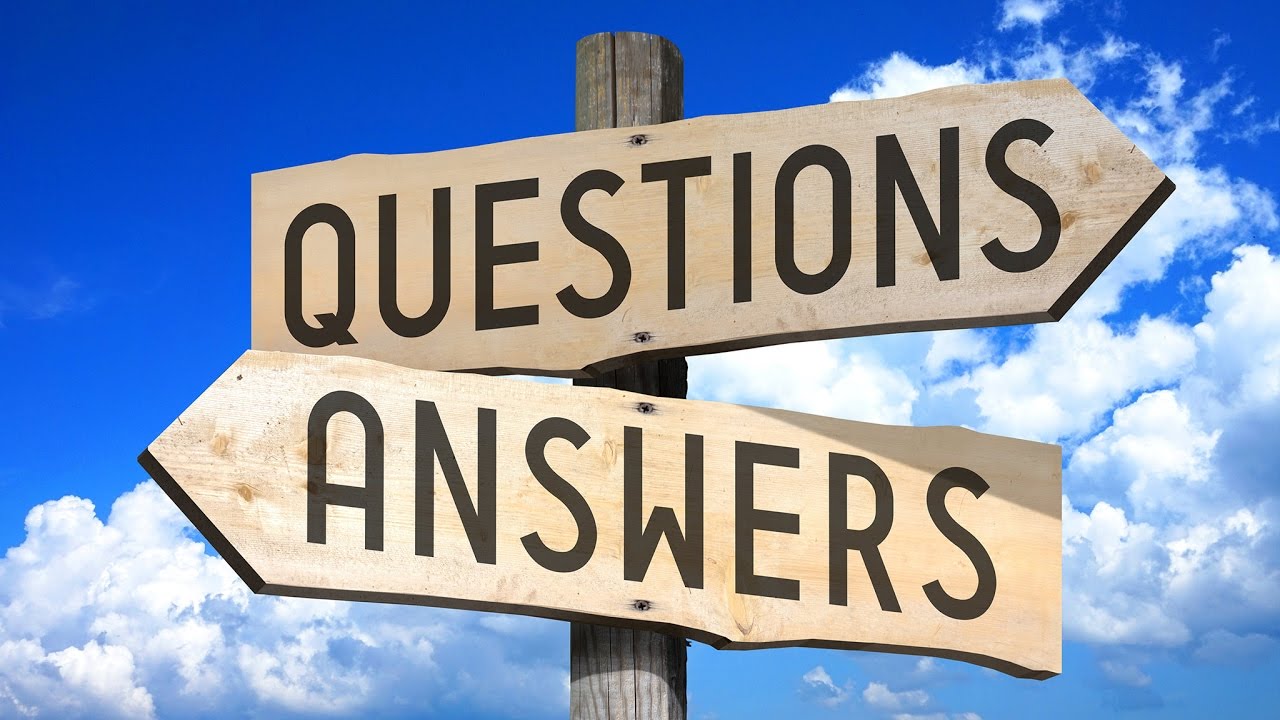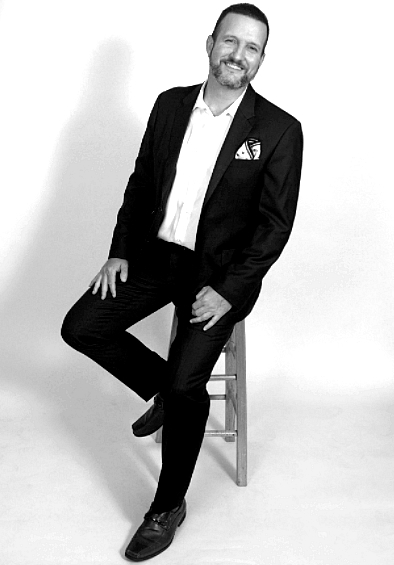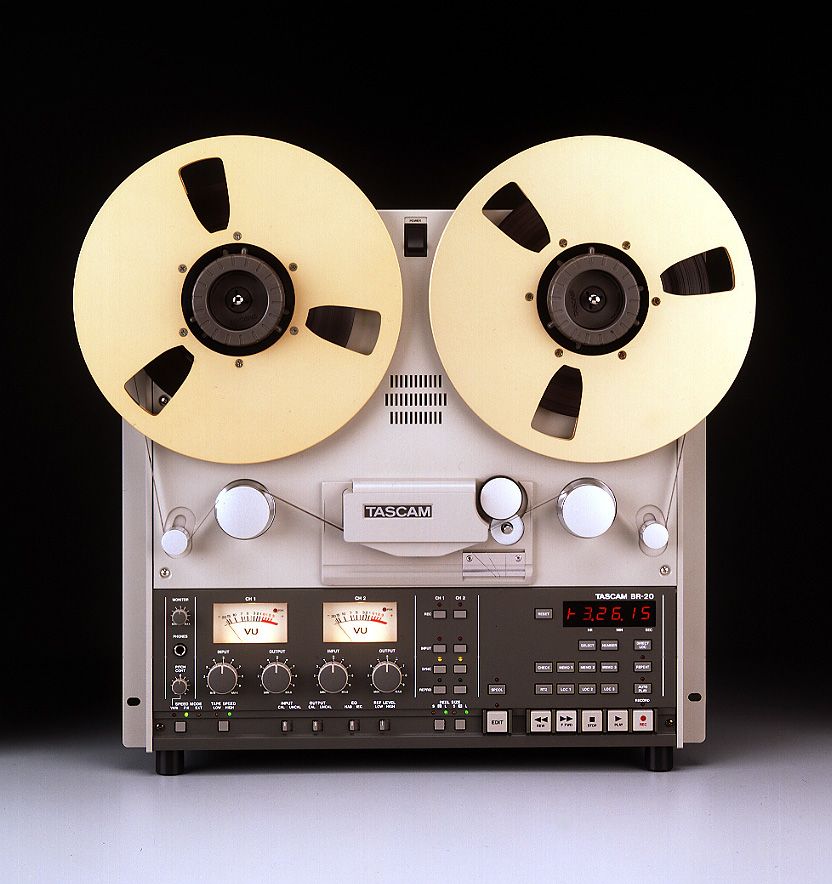Ask R Dub: Questions and Answers.
After you’ve read the book, ask R Dub! your questions in the comment section below and he’ll respond.
Did you see something in the book you didn’t understand?
Want R Dub! to expand on one of the books stories, subjects or steps?
Have a completely random question about syndication?
Just ask, below!
R Dub! also offers private, one-on-one consultation services for both radio personalities and radio stations. Ask me how!










There Are 33 Comments
R Dub!8-12-2020
Why is R Dub! so handsome?
R Dub!8-12-2020
Maybe it’s Maybelline?
Dean9-1-2020
What ifs the difference between FM and HD?
R Dub!9-1-2020
HD “side channels” can only be heard on special HD radios. Virtually no one owns these “HD radios” at home (the launch of HD radio over a decade ago was an embarrassing flop), however, many higher-end, newer cars come with HD tuners in the dash – so people in these cars can technically hear your show, *if* (and that’s a big “if” they even know that HD “side channels” exist.
HD radio is actually very cool and it’s a shame it wasn’t marketed correctly. It never took off and virtually no regular person (non-radio person) has any clue what “HD radio” even is. Literally, the worst launch of anything…ever! But it’s a cool product that allows frequencies to have one or more “side” channels, usually with commercial free, narrower (more niche) programming.
So how would one listen to an HD side channel? On an HD tuner you could have 104.7 HD1 (the station’s main frequency), then turn the knob and the next frequency would be 104.7 HD2, 104.7 HD3, and so on, with each one am entirely different radio station. Kinda cool! I encourage you to find a car with an HD radio and see how it works.
Sadly, I don’t know of ANY HD “side channels” (HD2, HD3, etc.) with ANY ratings whatsoever. Literally none. Not even a .1. So, although it definitely won’t “hurt” to be on an HD side channel, don’t expect even a penny of revenue for it.
Matt9-3-2020
Obviously getting your show on bigger stations with strong market reach is a positive. However, before a syndication deal, will having your show run on stations in non-rated markets help you? Ex. You have 2 medium markets on the air, and 10 small markets. Do the 10 small markets have any impact aside from saying “we have 12 stations total?”
R Dub!9-3-2020
As long as the station(s) is in a “rated” market and has more AQH than zero, it can all add up, no matter how “small” those markets are. However, “unrated” is a totally different ballgame. Syndicators–who are running a “business”–will not see the value in even 500 affiliates, if they are all in non-rated markets, because 500 affiliates in 500 unrated markets all equal zero dollars. So small, “rated” markets are great…but anything in an “unrated” market will generate zero traditional spot revenue.
Side note: I never mind giving away my show to unrated markets. I’m on in places like Rosebud, South Dakota; Ruidoso, New Mexico; Berlin, New Hampshire; etc. I just go in knowing that these stations are not adding to my revenue. I enjoy being on in little towns all over America in addition to the bigger markets, of course.
Annaliese9-12-2020
Is it possible for someone to start a new show (in hopes of getting syndicated) if they currently work in a small, unrated market? Or would the better course of action be to save the ideas they have until they’re working somewhere a little bigger (because of the ratings/advertiser factor)?
And if the show idea doesn’t fit the station you’re currently on (or any in your cluster), is it better to save those ideas again for a future job, or try to tweak your idea into a different format so you can start it where you work?
R Dub!9-12-2020
You could absolutely begin the local version of your show in an un-rated market, however you’d only be able to start (and complete) Step Two (Audience Measurement) once you’re on the air in a rated market. Remember, Step Two is all about getting a ratings story – and there are so many steps after that, but (in most cases) you really need a ratings story to pass Step Two.
Scott12-1-2020
I may have missed this in the book but when working on the clock do you assume a 50-50 national/local split as far as timing the show goes? For example for Slow Jams you said you run 5 minutes per hour do you base the timing of your show on the local station running 5 minutes as well?
R Dub!2-7-2021
Great question! I run 5 minutes national and allow for 7 minutes of local. It’s never going to be perfect for everyone, but this recipe has seemed to work so far!
Malone2-6-2021
Hi, R Dub…. Enjoyed the book and just got my first affiliate for a short segment (yay!). Thank you so much! Not sure how the affidavits work when I am self-syndicating. Do I need to provide them to the stations, and do you have a sample I can look at? And… My program is only a :60 segment. How do I tell a ratings story with that? Do I have way to tell a different “story”? Thank you!!!!! -Malone
R Dub!2-7-2021
Great questions, and WOW! Congrats on your first affiliate, that’s awesome! Are you currently running any spots/barter/commercials on your show? If not, then affidavits aren’t really necessary. The one thing sending them now would do is get your affiliates in the habit of filling them out every week – so when you DO get picked up by a network, it won’t be a big shock to them. I didn’t have my affiliates fill out ANY affidavits until I was picked up by a network – by then I had 27 stations already. Candidly, I probably wouldn’t worry about messing with “affi’s” AT ALL unless you really have to. It will save you AND your affiliate work! Let your network handle it when you get picked up.
Another great question about the “short form” ratings story. Definitely tougher to show a ratings story. One option is to track the station’s overall ratings or the daypart when they run your :60. If the number goes up, you can take credit! But it is much less scientific. So what I’m trying to say, is that if the station’s overall numbers go up – take credit for it! If they go down, don’t worry about it, because it’s not due to your short :60. Does that make sense? You can beef up on PD “endorsements.” Have them give you some quotes about your feature and how it sounds on their station. I hope this helps!
Scott Evans2-19-2021
When reaching out to new potential stations, especially when there is not already a personal relationship established, what is the best method to reach the PD? Email, phone, or old school mail with promotional materials?
R Dub!2-27-2021
Every PD is different: Check out CHAPTER 8 and read each PD’s interview. One of the questions I ask all of them, is HOW they prefer to be contacted. You’ll see most say email, however, there are PDs like Ron Stone who insist you call and introduce yourself first. So, it truly does vary!
Pete G4-7-2021
First and foremost: GREAT BOOK! I’m on the hands-on production end of things and definitely NOT the syndication end, so trying to get into it is a daunting task. Thanks for being there for those of us trying to crack open the door!
Okay, so here’s the question: How do I definitively determine if a specific station is in a rated market if all I know is the station’s call letters/city? It’s easy enough if it’s WABC in NY, but if it’s WNBY in Newberry, MI (which has a 50KW transmitter, so it’s not Podunk) or WWSE in Jamestown, NY (26.5KW) how do I tell? Is there a searchable database that doesn’t require an expensive subscription? (It’d be nice if I could determine AQH at the same time). I’m trying to convert a list of stations that have expressed interest in our show into an action plan based on what’s in a useful market. Closest I’ve found is https://tlr.arbitron.com/tlr/public/market.do?method=loadMarketsForState but that requires already knowing which market and only lists stations that subscribe to Neilson.
Thanks in advance for any insight!
R Dub!4-7-2021
So glad you are enjoying the book, Pete! These are GREAT questions, I indeed missed this area in my book, so thank you for asking here.
There are a few websites, including Nielsen’s, that keep tabs on rated markets. I found this one just now: https://mediatracks.com/resources/nielsen-dma-rankings-2020/
Searching and finding updated market lists and ranks is easy, because Nielsen makes that info public.
Next, try raidolocator.com and search by call letters. My favorite thing to use radiolocator for is to see the wattage and coverage of stations I am on, or trying to get on. It’s a really cool feature, and free!
Finally, visit allaccess.com and click their RATINGS tab for station 6+ ratings.
The three sources above can give you a general idea as to if you’re collecting any AQH (audience) or not in an affiliate(s).
Once you’re signed on to a syndication company – they’re the guys that subscribe to the expensive reports and services and can pull exact AQH, by hour and demo. That’s the info not available online to the public.
Let me know if you need anything else.
Pete G4-9-2021
Hi R Dub,
Thanks for your answer to my previous questions. I’m still trying to understand how to evaluate stations to launch on, so let me use some specific examples.
WMEX is a 10,000 watt station in the Boston market (its actually in Quincey). But it seems that WMEX doesn’t subscribe to Neilsen or Eastlan and therefore isn’t rated. Does that mean WMEX should be avoided because airing there would lock a show out of a rated station like WROR, WZLX or WBOS, all of which are RATED Boston-market stations? (For our example let’s assume WMEX has ASKED to run the show, while the other stations would be cold calls)? OR is there some value in airing on WMEX because it’s a powerful station in Boston? If it’s not rated, how does one tell?
Then there’s WKDK, a 1,000 watt station in Newberry, South Carolina. I can’t see what market it would be in and it’s not listed with either service. I need to determine if running on it would be a benefit, neutral, or a liability to be avoided. I THINK it’s neutral: I THINK it’s in an unrated market where it wouldn’t conflict with anything. Again, it has ASKED to run the show.
I have more than 50 stations to evaluate in this way. I’ve already found a number that are definitely rated. But I’ve got to figure out the remaining fifty or so.
Life was so much easier when all we had to do was produce the content and someone else worried about this part!
Thanks for all you do for this community.
R Dub!4-14-2021
I think having more than one option in a given market is a rare luxury – how nice it would be to have these problems! Remember, for now, you are simply doing a big, (quick if you can), land-grab to get on as many stations as you can, with the goal of being able to bring substantial AQH to syndicators and get a good deal. You’ll be able to tell if the station is rated by viewing the ratings (free) on AllAccess.com. You are right – WMEX is not part of the ratings. I’ve got a call in to Chachi at Benztown to ask how a show makes money in these situations. I’ll be back.
In general, I wouldn’t be too worried, or spend too much time on this in your initial launch. Maybe a good rule of thumb might be: if it’s NOT a rated station (which you can easily find out), you give yourself an easier “out,” so you can always move if you get interested from a rated station. I’m a fan of full transparency and always doing the right thing – so always best to be upfront about your concerns and intentions. Being on an UNRATED station in Boston still has its benefits – it’s a great selling point to other stations in the region…with the thinking, “Well, it’s on in BOSTON, and we look up that market – so it’s a safe bet for US!”
Pete G4-14-2021
Got it and thanks – definitely what to hear what Chachi at Benztown says, because understanding this stuff is important. Anyway – we’re all-out landing as many as we can! 🙂
Adrian5-5-2021
Hey Randy! Love the book!
When you were starting, how did you handle affiliate relations & Ad Sales ?
-Was someone selling ads for you from the time your show started? Or did you sign stations to barter deals, they started airing the show, and then you started airing ads at a much later date when the show was picked up by a syndicator?
One issue I’m having is the chicken/egg scenario, where I don’t have enough affiliates to get syndicated through a big syndicator, but I can’t get advertisers unless I’m with a big syndicator… or can I?
Do you just essentially do a show for free (with no spots) in the beginning until a syndicator picks you up 20 stations down the line?
-Also, what method would you recommend for distributing a content only show in the beginning? I’ve found some stations can pull files out of dropbox, but some automations aren’t equipped to do that automatically. Ideally, the show will eventually run on Mr. Master because it sounds glorious.
Thanks for your time Randy, I really appreciate it.
R Dub!5-5-2021
Great to hear from you. As there is not a “one size fits all,” I’m happy to elaborate on my story and I do believe–as the book spells out–this method will work in most, if not all cases.
Here are the answers…
Q. When you were starting, how did you handle affiliate relations & Ad Sales? Was someone selling ads for you from the time your show started? Or did you sign stations to barter deals, they started airing the show, and then you started airing ads at a much later date when the show was picked up by a syndicator?
A. As the book details, when I first started, I was handling affiliate relations 100% on my own. Give a re-read to STEPS 4-6.
There were almost ZERO ad sales when I started. I had literally 2 local/regional clients who I sold some airtime to, for a few hundred dollars, which was really nice to help with costs…but all my concentration and focus was spent on getting my show on as many affiliates as possible. You have to bypass the pennies to find the quarters – meaning, focus on garnering a big affiliate list (more AQH), which will get you the real $$$ from the agencies, once your show is represented. AQH = money! There are huge spot “clearing houses” that will sell the hell outta your AQH without you doing anything (except putting out a great product!) Don’t waste time going after a hundred dollars here and there for ads. See page 104. And yes, exactly, regarding commercials at a later date…stations loved an ad-free show and knew that eventually I’d have spots in my show.
Q. One issue I’m having is the chicken/egg scenario, where I don’t have enough affiliates to get syndicated through a big syndicator, but I can’t get advertisers unless I’m with a big syndicator… or can I?
A. I encourage you to ONLY worry about a giant land-grab of affiliates – as many as you can pile up. Don’t worry about advertising at ALL! See page 35 and 104 NOW! Your main goal – I sound like a broken record – is to stack up as many affiliates and audience (AQH) as you can. That will translate into a syndication deal which will translate to your show’s inventory (ads) being sold…almost instantly if the audience is there.
Q. Do you just essentially do a show for free (with no spots) in the beginning until a syndicator picks you up 20 stations down the line?
A. 1000000000% correct. You nailed it. That’s all outlined, in detail, in the book; specifically Chapter 3.
Q. Also, what method would you recommend for distributing a content only show in the beginning? I’ve found some stations can pull files out of dropbox, but some automations aren’t equipped to do that automatically. Ideally, the show will eventually run on Mr. Master because it sounds glorious.
A. Dropbox is the norm for free/cheap distribution. You can always call Mr. Master and see what they can do for you, although it may be out of budget.
Emerson Unger12-29-2021
R Dub,
Sorry for the many questions, but….
Q: if you have an international music show, one in which that music is not typically played on Top 40, how do you know that you have the rights to play the music?
Q: How do you know if you have a solid show? Are there elements that I can have in my show that will help it?
Q: What if the current station you’re on wants you to “tone it down” and change a lot of your style?
Q: Any suggestions on where are you can run physically into program directors to make connections?
Q: Any ideas about taking a radio show to TV? #RickeySmiley
Q: Being a white guy doing a slow jams show, did you ever get any push back not being a member of the R & B community, especially when the community is being attacked or dealing with racism?
Q: International syndication, any thoughts? Any place to get insight or mentor?
Q: Any ideas on where you can find great mentors who know about syndication (domestically and internationally) as well as somebody who can handle affiliate relations?
How much do you charge for a consultation and what does that entail?
Q
R Dub!1-4-2022
Q: if you have an international music show, one in which that music is not typically played on Top 40, how do you know that you have the rights to play the music?
A:Radio stations are always the ones that are responsible for paying music licensing fees, not the producer of the show. Zero responsibility for you here.
Q: How do you know if you have a solid show? Are there elements that I can have in my show that will help it?
A: I break this all down in Chapter Three.
As a refresher, you will know by:
-Success at your local radio station FIRST (before you ever syndicate)
-And then success at the first (or multiple) affiliates.
But it goes in that order – first you must win on one station (think if it as the test market) – then, only when the show is “right” and “ready” for syndication, do you present it to others. THEN – measure the success at these other stations. Make sure to go over Chapter Three, as the steps are laid out in great detail.
The elements to make it successful include a compelling product that listeners will not only “stay tuned” to listen to, but make an appointment to seek out your show as a destination. Make your show a “can’t miss” event. There are many other tools, including marketing that can help grow your show – make sure to re-visit Chapter 7.
Q: What if the current station you’re on wants you to “tone it down” and change a lot of your style?
A: You have to be true to you, although sometimes stations actually have good ideas. There’s one particular affiliate PD that is super picky with me, but you know what? He’s actually given me some valuable feedback and ideas that I’ve implemented that has helped the show! At the end, you are the decision maker and you must do what’s right for your show and its long-term success.
Q: Any suggestions on where are you can run physically into program directors to make connections?
A: Oh yes! Radio conferences like The All Access Worldwide Music Summit, NAB and Conclave. There are a number of annual radio conventions where PDs congregate.
Q: Any ideas about taking a radio show to TV? #RickeySmiley
With Twitch, YouTube and a dozen other platforms and cheap software available, anyone can bring their radio show to a visual offering! It’s a big commitment though. Make sure you know what the payoff is – set some goals and make sure you know why you’re doing it.
Q: Being a white guy doing a slow jams show, did you ever get any push back not being a member of the R & B community, especially when the community is being attacked or dealing with racism?
A: Well, I definitely consider myself part of the R&B community. I’ve been promoting and breaking R&B music since 1994, have worked with artists behind the scenes and put together many a concert tour. That being said, I’m sure there might be racist PDs out there that might not put my show on because of the color of my skin. While that is wrong, it’s out of my control. All I can do is continue to work hard and put out the best product I can.
Q: International syndication, any thoughts? Any place to get insight or mentor?
A: It’s really tough because the model is different: It’s not based on barter, but worked as a cash model: international radio stations pay cash for your show. You should contact a company called Radio Express. They specialize in international syndication.
Q: Any ideas on where you can find great mentors who know about syndication (domestically and internationally) as well as somebody who can handle affiliate relations?
A: Chapter Nine! It lists evert syndication company in existence. They do affiliate relations. Also re-visit my “Special Ops” section at page 143 for hints/tips about finding someone to help with affiliates. Re: mentors – try reaching out to any of the syndicated people, PDs and execs listed in Chapter 8.
Q: How much do you charge for a consultation and what does that entail?
A: I consult stations, shows, networks and personalities – and work differently with everyone depending on their needs and budgets I’d be happy to jump on a call with you and discuss.
Emerson Unger3-22-2022
R Dubs,
When you are pitching a PD or a syndication company, do you use a type format for a media kit or do you have example pitch kit?
-Emerson
R Dub!3-22-2022
I do! Many examples listed HERE: https://www.gosyndicateyourself.com/readersonly/
Emerson3-25-2022
R Dubs,
Yes, I saw that. I really like the videos from Tino Cochino and The Old School House Party With Gerald
McBride. I’m sorry I guess I meant to ask, do you send a actual pitch kit (PDF) to PD with stats and figures or do you just send them to your show’s website? Also, a part from telling a rating success story in your pitch, what else is good to have? Lastly, do you pitch differently a station vs. syndication company, when getting started?
R Dub!3-27-2022
As a PD myself, I like anything that is EASY and quick. So I love the “one click” approach – ONE link that gets my to a demo and one-sheet, all on ONE webpage, and easy to read/listen/see/understand, etc.
Sometimes we do send stations specific PDFs, so I’m not saying PDFs are bad. But the less “things” you send, the better. I love “one click” to see everything neatly and cleanly laid out. I think that’s best.
I think the demo and one-sheet should clearly define what the show is about, it should include real samples of the show, and 2-3 PD testimonials are GREAT!
And yes, your pitch to a radio station is entirely different than your pitch to a syndication company, because you want entirely different things from each one.
Emerson3-25-2022
R Dubs,
Sorry to be a bother today, but a few more quick questions:
1. Do you have a really good example of a show clock that has been proven successful for a music show? I know each show is different, but if something is really great why not steal it and test it out 🙂
2. You have an awesome 24-hour channel on iHeart. Can any DJ get one? If so, how?
3. Is it ever too early to pitch a syndication company? Ms. DeDe McGuire told her story at MSBC in 2018 about pitching her current company without the 10 markets. Is that wise to do or was she just lucky?
Thanks!
R Dub!3-27-2022
1. Basic is best. Two local breaks at :25 and :55 for stations to run their local commercials.
2. Thanks. And I don’t think so. I think channels are created on a case-by-case basis. I created mine while I was a PD in L.A. at Clear Channel.
3. Never hurts to start dialogues with syndication companies. At very least they can assess where you are now and where you need to be to solidify a deal.
These are all great questions. Best of luck!
Justin Luvv11-17-2022
I believe I have a unique concept as part of the programming content structure, but I don’t want anyone to steal my concept. Can I file for a Copyright? I searched all throughout the Federal site for filing, but I’m not sure if this form of creative work qualifies? Btw, this book and Slow Jams are amazing! #ShamelessBrownNoseMoment
R Dub!11-17-2022
Fun fact: The moment you create something – even if it is written on a napkin, you’ve copy written in. The law says: “Your work is under copyright protection the moment it is created and fixed in a tangible form that it is perceptible either directly or with the aid of a machine or device.”
That being said, you may want to “patent” an idea or”trademark” a name. At the end of the day, unless this is some technological breakthrough (something physical), you’d have to spend a TON of money to try and “protect” your idea from being stolen, and even then, it is not assured protection. In this case, feel free to send me a DM to discuss further and I promise not to steal your idea (pinky swear.) But plain and simple, most ideas/philosophies can be stolen and the good ones will be – at the end of the day, you must just make sure YOU are doing it better than anyone else.
Ju8-12-2024
Hey sir, you have an excellent book! Thank you!
Question, I work in gospel radio, and the niche is so small. What is your advice on an angle to tackle? Also, what are your thoughts on a one-minute segment that could be marketed/syndicated?
Thanks!
R Dub!8-12-2024
Great to hear from you, Ju. I haven’t worked in Urban AC for a while, but I think most UAC stations have Gospel programming on Sundays, yes? That being said, you have a WANTED and IN-DEMAND product! I am a fan of one-minuet segments as well…but I think multi-hour programming is your best bet because of stations lack of budget for local talent – I believe this is your low-hanging fruit. But why not both?